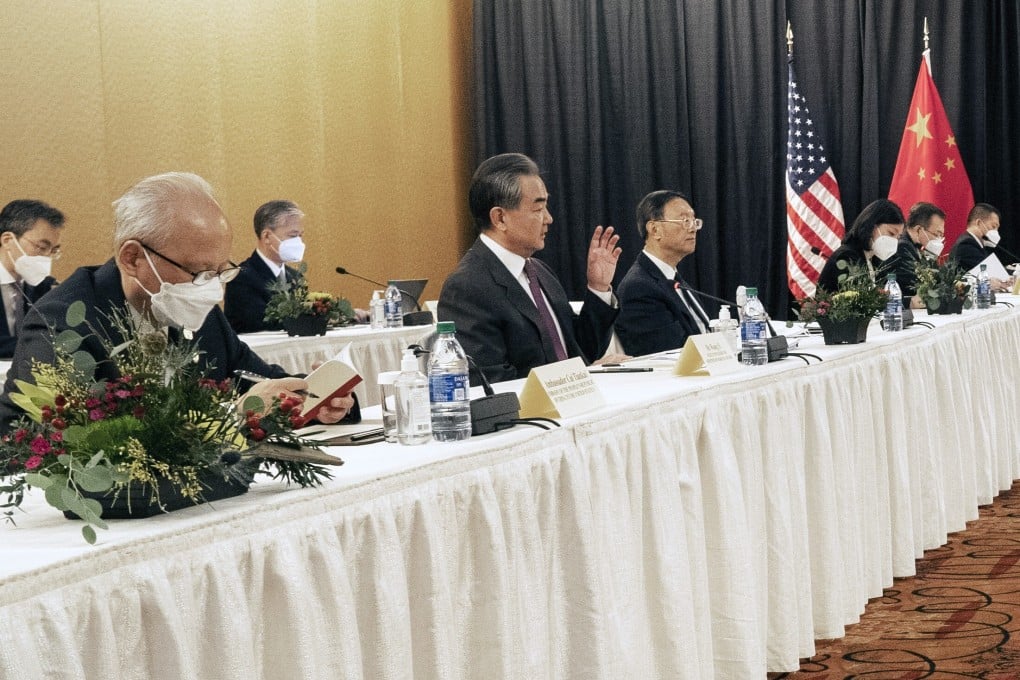US-China meeting brings heat to Alaska summit with claims of protocol violation and theatrics
- Verbal endurance and one-upmanship turns opening statements by top diplomats into an event lasting over an hour
- Press corps given mixed signals as they are dismissed and called back again for diplomats to make their point

The Chinese delegates were jovial enough going into the afternoon meeting, with state councillor and Chinese Foreign Minister Wang Yi waving to journalists and asking Yang Jiechi, Communist Party Politburo member who is more senior than Wang, if he had had lunch. Yang said he had eaten instant noodles.
That came soon after their first meeting with US Secretary of State Antony Blinken and White House national security adviser Jake Sullivan, which ran for longer than expected as Yang went beyond his prepared script to hit back at the United States.
“Because, Mr Secretary and NSA Sullivan, you have delivered some quite different opening remarks, mine will be slightly different as well,” Yang said.
The meeting was supposed to kick off with two minutes for opening remarks, agreed to by both sides. But Blinken and Sullivan spoke for about 10 minutes.